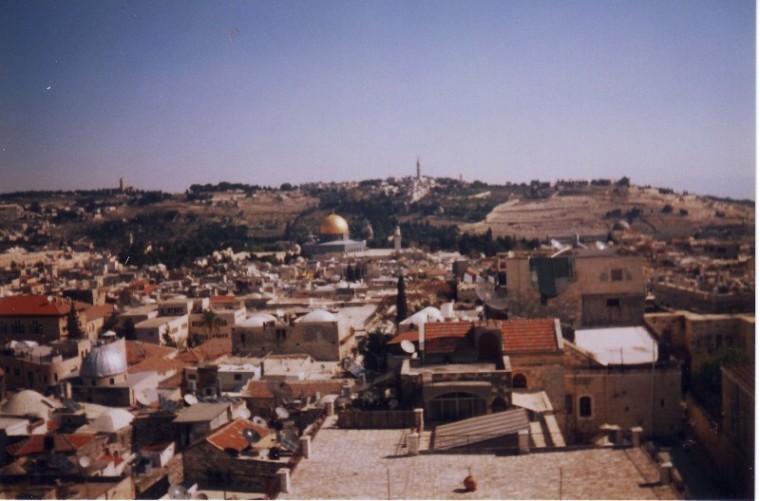
It is Good Friday. I have written about Purim most years and 2020 is no different. Easter is about the path to Salvation through Jesus death on the cross followed by the resurrection. This idea of the salvation process is picked up throughout the Scriptures and one such scenario is associated with Esther.
The happy Jewish Purim celebration acknowledges the story of Esther and how as Queen she saved her people in ancient Persia. This is usually celebrated at the very start of March but I have waited until the end of March to write it.
I have been interested in Biblical Jewish interpretation since a boy as my parents always had this type of literature laying around the house. I receive materials from the Bridges for Peace Mission in Jerusalem, and I noted some of the traditions.
Explanations
The book of Esther, called “The Megillah” (to distinguish it from the other four ‘megillahs’, or ‘scrolls’ that are read at different times) is read aloud in the synagogues.
During the service, every time the name Haman is read, the entire congregation makes loud noises to drown out the sound of his name. They boo, hiss, and shake noise-makers called “rashanim.” Every time the name Mordechai is read, they cheer loudly.
Many costume parties are held, with outlandish costumes being the norm. In Israel, children dress up in costumes not seen elsewhere, such as Torah scrolls (the 5 books of Moses, Genesis to Deuteronomy) and high priests. The fast of Esther, commemorating the three days of fasting and praying prior to Esther visiting the King to ask for her people to be saved from Haman’s plot of massacre, is observed by many.
As well as celebrating and being commanded by the Talmud (the interpretations of customs set down my many generations of Rabbis) to ‘eat, drink and be merry’, Jewish people donate gifts (traditionally food and drink) to charity during Purim.
This year the celebrations, which follow the traditional Biblical calendar and so do not fall on the same day of our modern calendar each year, were held early, on Thursday, February 25, so the fast would not land on Shabbat (Sabbath or Saturday).
http://www.bridgesforpeace.com/

Purim
Purim not only acknowledges the story of Esther and the role she played in saving her people, it is a reminder of vigilance and the critical role that people in the right place at the right time have played throughout history.
The book of Esther is unusual in that it is the only book of the bible that does not contain the name of G-d. (In Jewish tradition, the name of The Lord is never spoken or written). Mordecai does make a vague reference to the fact that the Jews will be saved by someone else, if not by Esther, giving the important message that can be gained from the story is that G-d often works in ways that are not apparent, in ways that appear to be chance, coincidence or ordinary good luck.
http://en.wikipedia.org/wiki/Book_of_Esther
We might note that the story of Esther's are all around us - the African slave trade had its Esther in William Wilberforce. Apartheid in South Africa had its Esther in both Nelson Mandela and Archbishop Desmond Tutu.
The Jews of the Holocaust - there were many Esther's that saved either one single Jewish person, or thousands. If these people were Gentiles, they are commemorated as the Righteous among the Nations in Jerusalem, and if you visit that city you can see the trees planted in their honour.
http://en.wikipedia.org/wiki/Righteous_among_the_Nations
Purim is a reminder for us all, that vigilance against any sort of vicious control of any people group is a task that befalls us all.

This message of Purim can also apply in principal to situations that are not life threatening; but situations where we see that people are simply acting politically to gain an advantage. Whether it is a P&C committee, a sports club, a Church or Mission, we can alert others to avoid the manipulation that can be enacted in the work place or wherever.

There are more subtle messages in Purim. The Jews were not actually saved from the ravages set by Haman – it was too late for the King to reverse the order to attack them. However, what he did was to allow them to defend themselves and this decision triumphed over Haman’s men in the end.
This message from the Scriptures is to alert anyone or people group to any danger you might see, and empower them to create their own defences, in their own way and the applications of that are legion.
Surely this is also part of the Easter message, that Jesus' death followed by his resurrection empowered his follows to seek righteousness and justice and hence the major impact Christians play in these roles in our world today.

Dr Mark Tronson - a 4 min video
Chairman – Well-Being Australia
Baptist Minister 45 years
- 1984 - Australian cricket team chaplain 17 years (Ret)
- 2001 - Life After Cricket (18 years Ret)
- 2009 - Olympic Ministry Medal – presented by Carl Lewis
- 2019 - The Gutenberg - (ARPA Christian Media premier award)
Gutenberg video - 2min 14sec
Married to Delma for 45 years with 4 children and 6 grand children